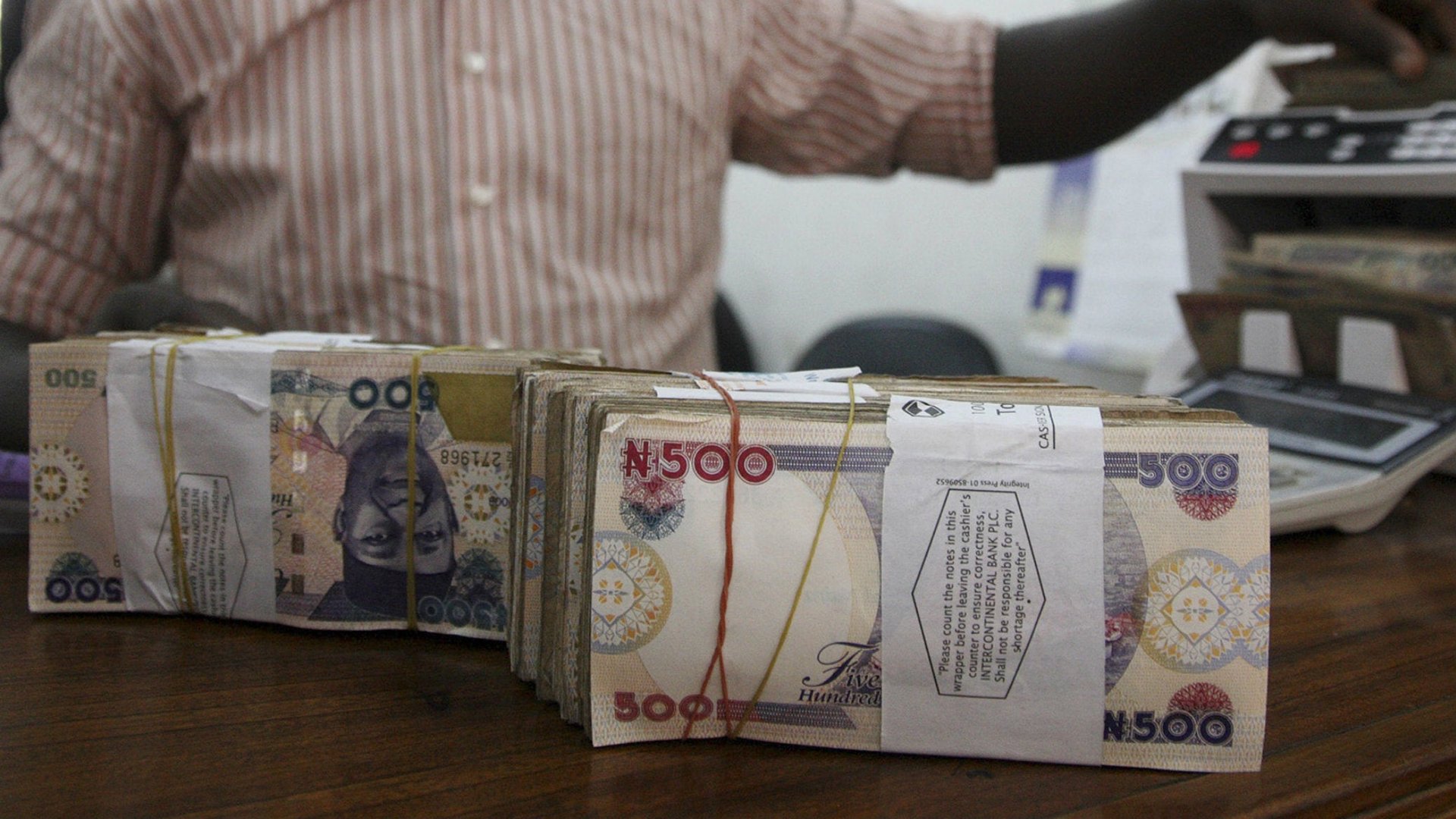Nigeria is no longer running short on dollars—for now
In the past year, it’s been almost impossible to say anything about Nigeria’s economy without talking about the naira.


In the past year, it’s been almost impossible to say anything about Nigeria’s economy without talking about the naira.
Currency controls imposed by the government of Muhammadu Buhari led to a downward spiral for the naira, which changes hands at vastly weaker rates on the black market than the official one set by the Central Bank of Nigeria (CBN). As the central bank tries to manage the exchange rate rather than let it float freely, as advised by the IMF and World Bank, the parallel markets have delivered a damning verdict on what the naira is really worth.
Nigeria’s latest currency woes can be traced back two years ago, when president Buhari first took over. Despite dwindling foreign reserves thanks to the fall in global oil prices, CBN governor Godwin Emefiele at first refused to devalue the naira—in line with Buhari’s wishes. But in June last year the CBN finally gave in, adopting a flexible exchange-rate policy determined by market forces. To nobody’s surprise, the naira immediately fell sharply against the dollar.
But soon after the policy was adopted, it became clear that the naira was never fully floated. As part of a ”managed float,” the CBN intervened in the market for dollars, which were in high demand. This didn’t last, and so importers and anyone else who needed dollars were forced, once more, turn to the black market. The gap between the official and black-market exchange rates then grew wider.
The CBN is back in the market now, stepping up its interventions over the past month, supplying banks with dollars and allowing retail customers who want to buy forex for travel allowances or to pay school fees to do so—although at an approved rate. In recent months, restrictions on sales had pushed many to resort to the black market regardless.
With at least some of the pent-up demand for dollars now being met by banks, the rate in the parallel market has started to return closer to the official rate:
The improved supply of dollars has eased a shortage which left local businesses unable to import raw materials and Nigerians unable to meet medical expenses as well as pay tuition at foreign schools. The shortage, as well as the CBN’s unpredictable controls and Nigeria’s weak economy, had also scared away investors. The moves by international airlines to either pull out or cut routes to Nigeria has not been the best advertisement for the country’s business climate. By easing the dollar shortage, the CBN is likely hoping to convince Nigerians, and foreign investors, that the naira’s most nervous days are over.
Regardless of recent stability, Nonso Obikili, a Nigeria-based economist, says it’s not clear how long the central bank can keep up its interventions. These have only been possible lately thanks to slightly improved foreign reserves: with a fragile peace pact holding in Nigeria’s oil Niger Delta region, production once hobbled by militants has been ramping up, allowing the country to earn more from its main export.
The central bank’s ability to keep the supply of dollars flowing is dependent on conditions beyond its control, such as global oil prices and peace in the volatile Niger Delta region. But just as importantly, the CBN’s struggles to keep the naira under control have hurt its credibility.
For much of his tenure as central bank governor, Emefiele has been thought to prioritize politics over economics, leading to the botched naira float and calls for his resignation. The recent dollar interventions have helped somewhat, but the CBN’s somewhat arbitrary new set of exchange rates has done little to ease the most serious concerns. “There is still no credibility, and still no functioning transparent official market. There is no price discovery mechanism. The result is that the CBN is still acting as a price fixer which, at the core, is the problem,” Obikili says. The creation of yet more exchange rates “will remain concerning for investors,” says Manji Cheto of consultancy Teneo Intelligence.
The short-term goal of closing the gap between official and black-market rates has been achieved, but regaining investor confidence in the long term will take longer. “Investors would like to see a more sustained period of policy certainty before they can begin to feel more confident again,” Cheto says.